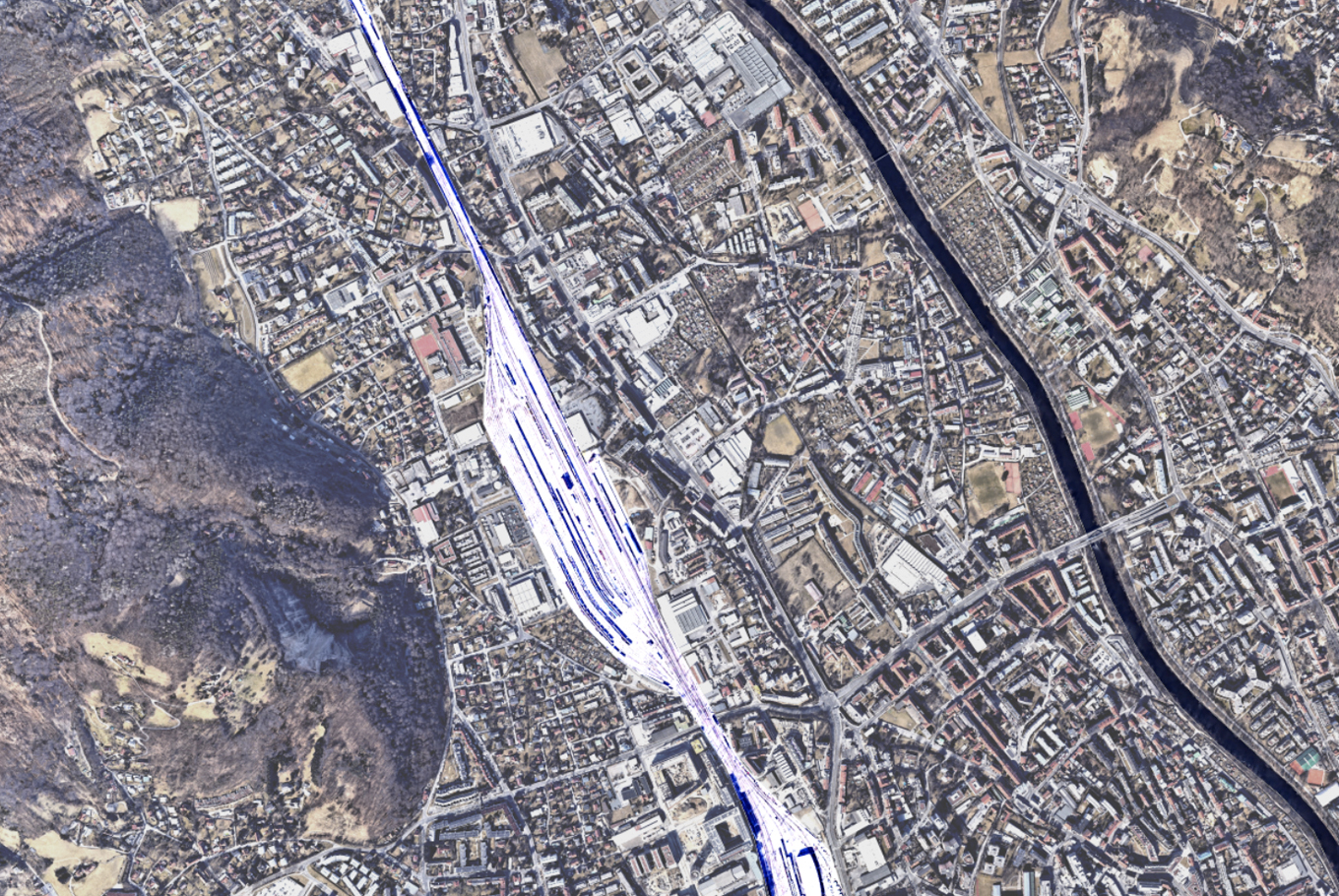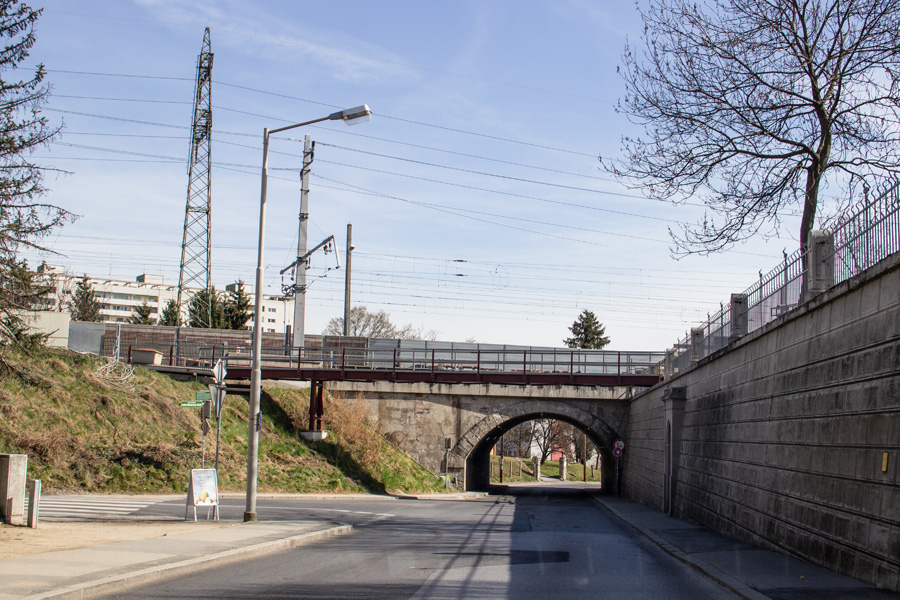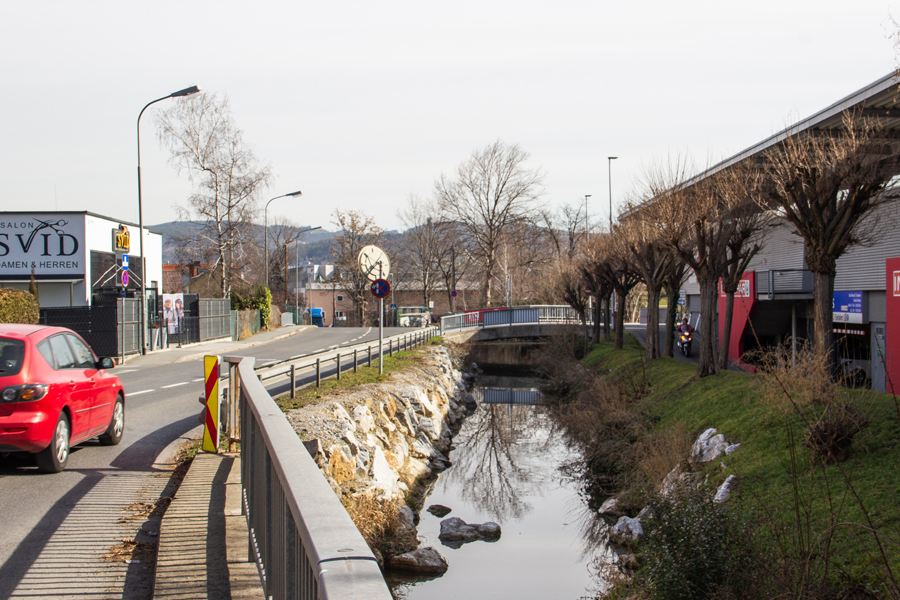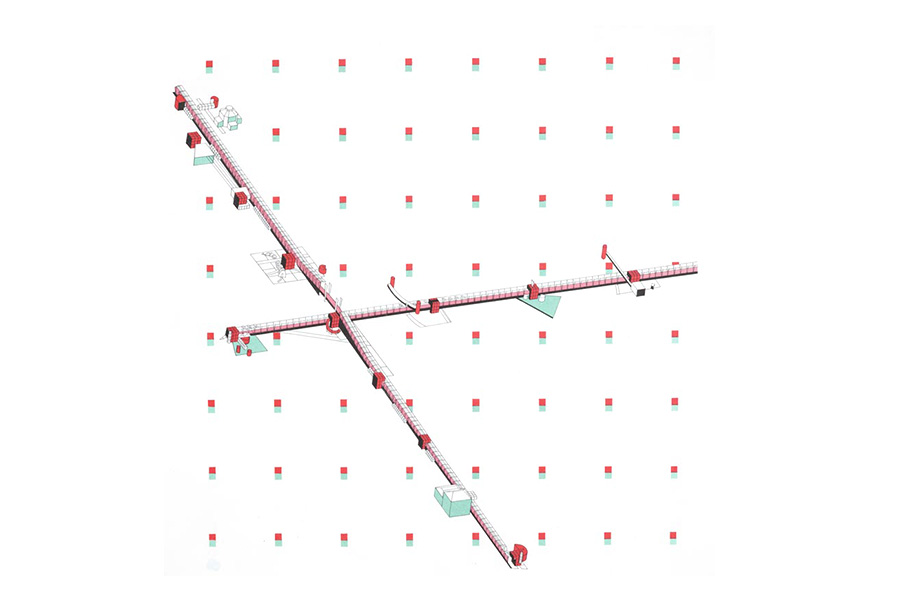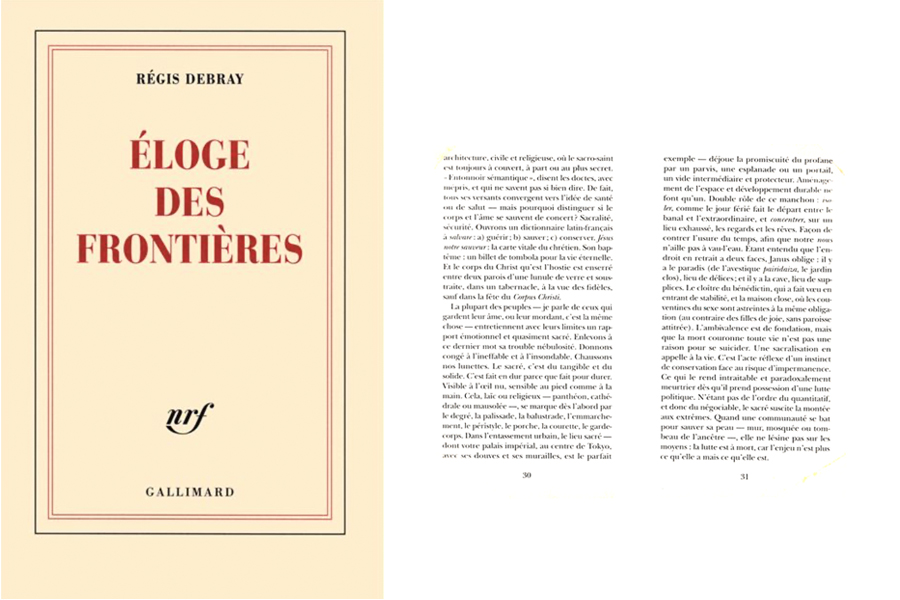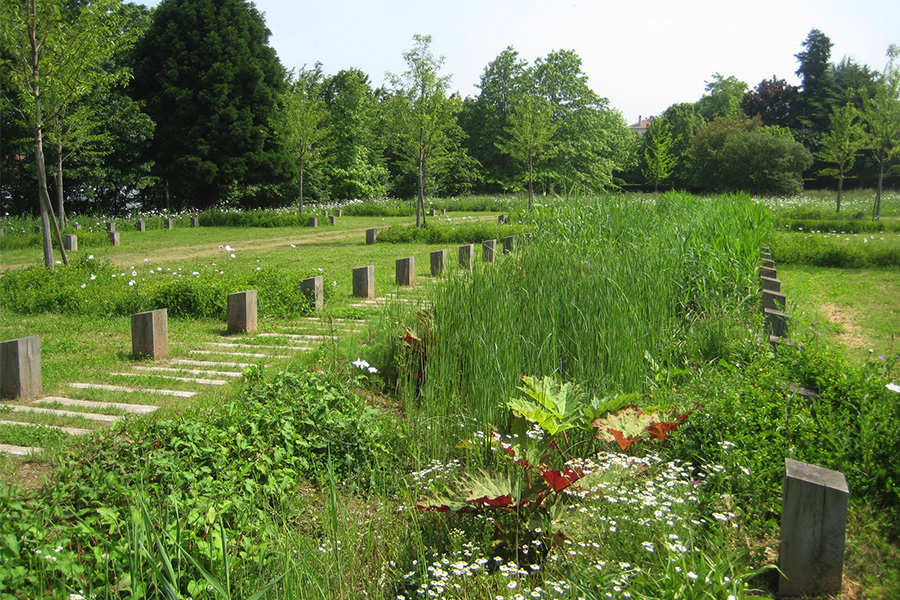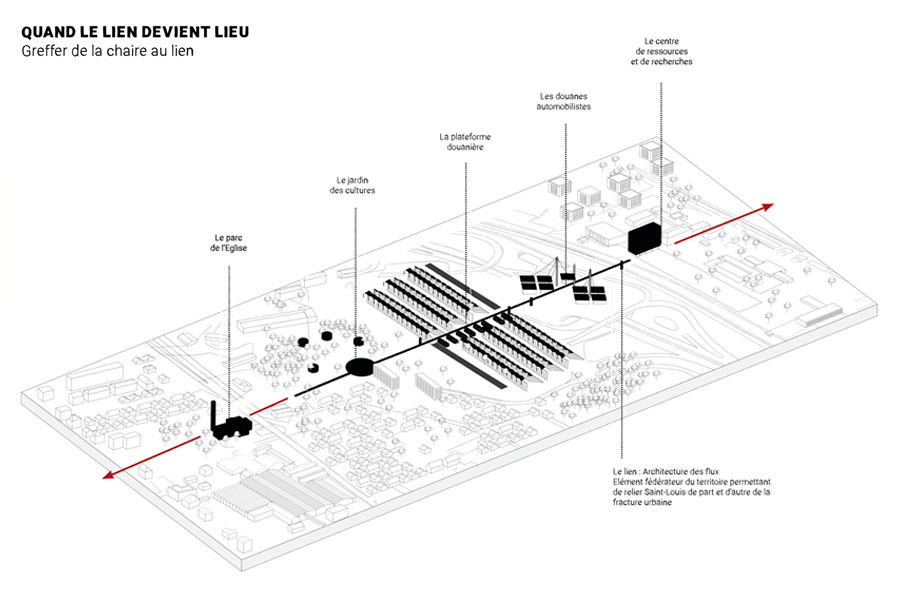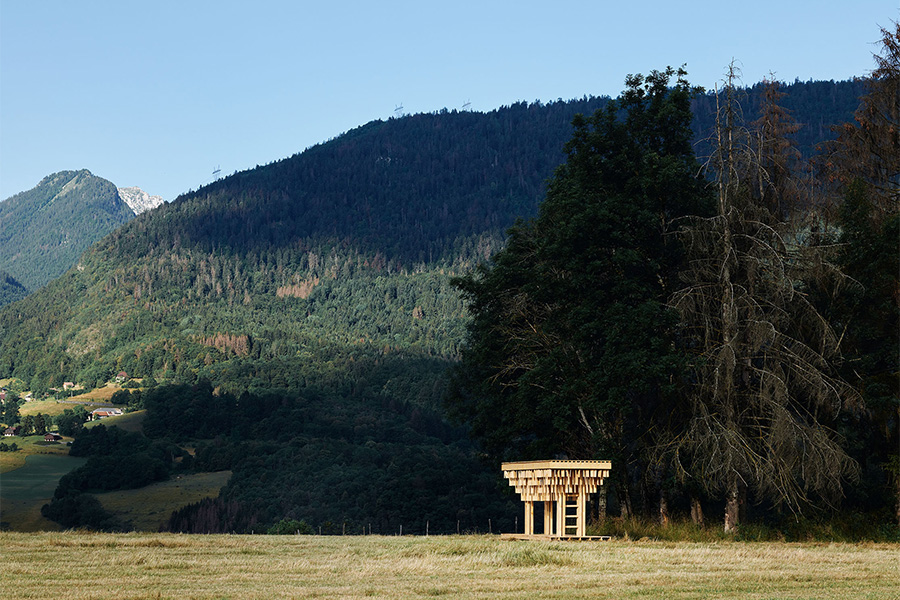Switch on the Swales
Graz ( AT) - Mentionné

DONNÉES DE L’ÉQUIPE
Associés: Arthur Rundstadler (FR), Charlotte Sampson (FR), Marion Conte (FR), Léa Malga (FR) – architectes, Jean-Pierre Serna (FR) – architecte-urbaniste, doctorant en sociologie
Collaborateurs: Berenice Aubriot (FR), Esteban Borteele (FR), Bertille Bourgarel (FR), Amélie Lhomet (FR) – architectes, Magda Meziane (FR) – architecte illustratrice
pile.experience@gmail.com
TEAM PORTRAIT
VIDEO (by the team)
INTERVIEW
Click on the images to enlarge
1. How do you define the main issue of your project in relation with the theme “Living Cities Imagining architecture taking care of the milieus”? And in which way do you think your project can contribute to an ecological and/or social evolution?
The “switch on the swales” master plan uses water as its physical and metaphysical matter to link people and spaces, to build places and landscapes, to high quality of life at the global warming era. We wandered what if, rather than mastering the water, we decide to follow it? To think like water: circulate, infiltrate, reflect or purify... We used this magic to give new meaning to the territory.
2. How did the issues of your design and the questions raised by the site mutation meet?
The territory of Gösting suffers from its fragmentation into monofunctional areas. Therefore, our approach is based on 3 main axes:
1. To renaturate: See the landscape both as a resource and a project.
2. To innervate: Ensure the fluidity of connections, to create vegetated routes for soft mobilities, that criss-cross and flow beyond the boundaries of the neighbourhood.
3. To densify: Develop Gösting’s attractivity and diversify the range of activities and services it has to offer.
PROJECT:
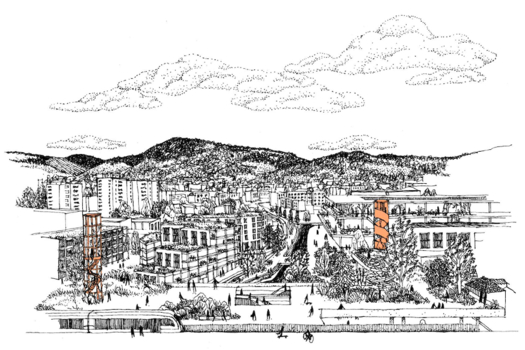
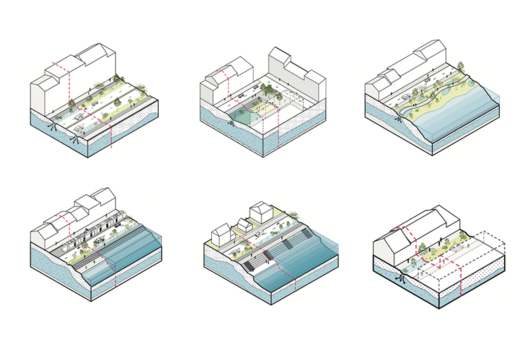
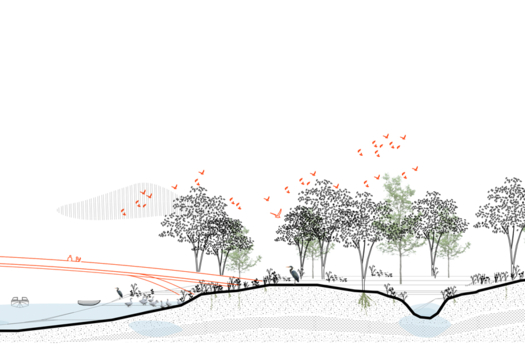
The water approach comes from ancient Olmec philosophy that we interpreted in our own way. The duality between rupture and couture of the site it's a subject we're very familiar with. We covered this subject for example with our proposal “From the door to the threshold” for the Tony Garnier urban planning competition. We get inspired also with references of the work of Bernard Tschumi, Gilles Clément, Jacqueline Osty and many more… However as there are several of us, we mixed our backgrounds and our engagements. We get focused on Graz and on what we can learn of it from France. We followed then our intuition and drew on our imagination to look at the city not as if on a map but at eye level.
SITE:



We do have an experience on consultation process. We’re conscious of its importance as well as of its limits. To make Gösting switch on the swales, it will be necessary to mobilise, consult and federate. Our master plan is conceived as a process, so you can start with small or bigger actions. Our summited proposal is just a small summary of the plan that we imagine.
REFERENCES:



We’re a multidisciplinary team from architecture to graphic design, from urban planning to sociology, anthropology, literature... But first of all, we’re a group of collaborators from different origins. Some of us just met at Europan. We were joined by a desire: to make of Europan an adventure, to experiment ideas, to mix our backgrounds and see what comes out.
6. How could this prize help you in your professional career?
The Europan Prize is a renowned competition rich in knowledge, that we are happy to have been able to contribute to it. As we are pushed around on a daily basis by the challenges of our time, which confront with political, economic and human issues, Europan encourages us to re-examine our design processes and to pursue complex, multi-faceted reflection on territories in need of answers. Furthermore, it's an undeniable human adventure, enabling us as architects to discover new collaborations, through a shared project that allows each and every one of us to research, understand and experiment with a joyful and imaginative approach.
TEAM IDENTITY
Legal status:
Team name:
Average age of the associates: 29 years old
Has your team, together or separately, already conceived or implemented some projects and/or won any competition? if so, which ones?
- Lauréat des Cabanes d’Annecy, Annecy, France, 2023 (Marion Conte)
- Runner up of the urban planning competition “Tony Garnier”, Paris, France, 2023 (Léa Malga)
- Runner up of the “Prix des Jeunes Architectes” from the French academy of Architecture, Paris, France, 2022 (Arthur Rundstadler)
- Lauréat du Consejo Nacional de Ciencia y Technologia (Conacyt), Mexique, 2011 (Jean Pierre Serna)
WORKS:






